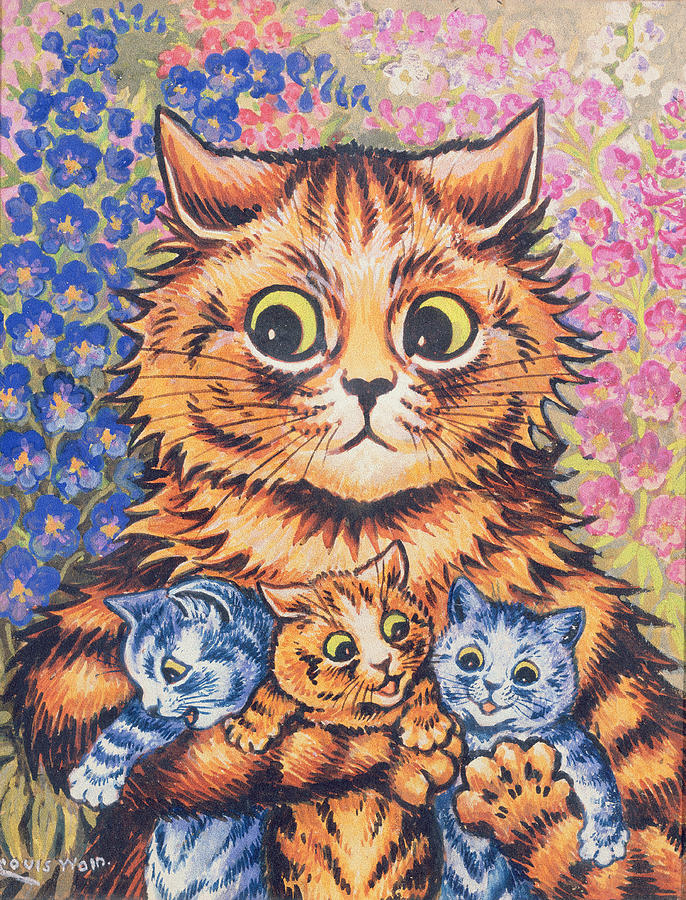
Why do Cats Lick their Paws
Share
Why Do Cats Lick Their Paws? Understanding Feline Grooming Behavior
Cats are known for their meticulous grooming habits, often spending hours each day cleaning themselves. One of the most common behaviors cat owners observe is their feline friend licking its paws. But why do cats do this? Is it just about cleanliness, or is there more to the behavior? Let's explore the various reasons why cats lick their paws.
1. Grooming and Hygiene
One of the primary reasons cats lick their paws is to keep themselves clean. Unlike dogs, cats do not rely on external baths and instead use their tongues as built-in grooming tools. A cat’s tongue has tiny, hook-like structures called papillae that help remove dirt, loose fur, and debris from their coat.
Cats often lick their paws and then use them to wipe their faces, ears, and other hard-to-reach areas. This self-grooming routine helps distribute natural oils throughout their fur, keeping it soft and healthy while also reducing odors and potential irritants.
2. Thermoregulation (Temperature Control)
Cats don't sweat the way humans do, but they still need to regulate their body temperature. By licking their paws and allowing the saliva to evaporate, they create a cooling effect, similar to how sweat works for us. This is especially common in hot weather when a cat may groom more frequently to stay comfortable.
3. Stress and Anxiety
Excessive paw licking can also be a sign of stress or anxiety. Cats may resort to over-grooming as a coping mechanism when they feel nervous or overwhelmed. Changes in their environment, such as moving to a new home, the presence of a new pet, or loud noises, can trigger stress-induced grooming.
If you notice your cat licking its paws excessively to the point of hair loss or skin irritation, it may be worth consulting a veterinarian to rule out anxiety-related conditions or other underlying issues.
4. Medical Issues (Infections, Allergies, or Pain)
Sometimes, a cat licking its paws excessively can indicate a medical problem. Some possible reasons include:
- Infections: Bacterial or fungal infections can cause itchiness and discomfort, leading to increased paw licking.
- Allergies: Cats can develop allergies to food, environmental factors (like pollen or dust), or even certain materials in their bedding or litter. These allergies can make their paws itchy and irritated.
- Pain or Injury: If a cat has an injury, such as a cut, insect bite, or sprain, it may lick the affected paw to soothe the discomfort. Cats may also lick their paws due to joint pain from arthritis, especially in older felines.
5. Habitual Behavior
In some cases, paw licking can become a habitual or compulsive behavior. If a cat starts licking excessively without an apparent reason, it could be a sign of feline obsessive-compulsive disorder (OCD). While rare, compulsive grooming behaviors can develop over time and may require behavioral intervention or veterinary guidance.
When to Be Concerned
Occasional paw licking is completely normal, but if your cat is licking excessively, limping, losing fur, or showing signs of discomfort, it’s best to consult a veterinarian. Persistent licking could indicate an underlying medical condition that requires attention.
Conclusion
Licking their paws is a natural and essential behavior for cats, serving purposes from grooming and temperature control to stress relief and medical symptom management. Understanding your cat's habits can help you distinguish between normal behavior and potential health concerns. By keeping an eye on their grooming patterns, you can ensure your feline companion stays happy and healthy.
